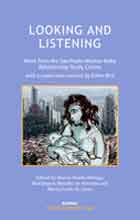Developments in Psychoanalysis

Book Details
- Publisher : Routledge
- Published : 1989
- Cover : Paperback
- Pages : 376
- Category :
Psychoanalysis - Catalogue No : 2525
- ISBN 13 : 9780946439706
- ISBN 10 : 0946439702
There are currently no reviews
Be the first to review
Psychoanalysis is a science evidently fore-ordained to growth and expansion, and among those who have extended the scope of both theory and practice Melanie Klein holds a unique place.
This book is a survey of the developments in psychoanalytical knowledge resulting from her work. Her main discoveries relate to the very early phases of mental life. She recognized that the world of unconscious feeling and impulse (which we call 'phantasy') is the effective source of all human actions and reactions, modified though they are when translated into actual external behaviour or conscious thought. Although Freud first enunciated this truth, which originates in his fundamental discovery of the unconscious mind of man, he left many problems still unsolved. These have been brought nearer to a solution through Melanie Klein's consistent awareness of the significance of unconscious phantasy.
Not only students of psychoanalysis and workers in related medical fields but also practising child-psychologists and the informed lay public will find this book of absorbing interest.
About the Editor(s)
Melanie Klein was an Austrian-born British psychoanalyst who devised novel therapeutic techniques for children that had an impact on child psychology and contemporary psychoanalysis. She was a leading innovator in theorizing object relations theory, and remains one of the most important figures in psychoanalytical theory and practice.
Joan Riviere was born in Brighton, Sussex, in 1883, and was educated firstly in Brighton itself and then at Wycombe Abbey School, a well-known girls' boarding school. Although she received no university education, an event of great significance for her later career occurred in her seventeenth year when she was sent to live with a family in Gotha, Germany, in order to acquire proficiency in the German language. In 1906 she married Evelyn Riviere, a barrister at the Chancery bar and son of the successful Victorian painter, Breton Riviere. By 1915 she had entered into analysis with Ernest Jones, and some years later embarked on her first translations of papers by Freud. When the analysis with Jones proved unsatisfactory she became, for a brief period, Freud's analysand. Freud was quick to discern her potential usefulness to the psychoanalytic cause as a sensitive and creative translator, and in 1922 she was appointed Translation Editor of the International Journal of Psycho-Analysis; a position she occupied until 1937.
It is uncertain when Joan Riviere and Melanie Klein first met but, by the time Mrs. Klein settled in London in 1926, she was already established as An early supporter. In later years Riviere emerged as one of the most articulate proponents of Kleinian ideas, working closely with Mrs. Klein during the 1930s and 1940s, and publishing several papers of her own. A certain coolness, however, developed between Klein and Riviere in the 1950s as Riviere-always uneasy in groups- gradually withdrew from the growing circle of students and supporters who surrounded Klein as her influence and authority made themselves felt.
Since her death in 1962, Joan Riviere's reputation has rested principally on her early achievement as a translator and on her later role as a persuasive and lucid disseminator of Freudian and Kleinian ideas. The respect gained for her in these quarters has, however, tended to obscure the importance and originality of her own contributions to psychoanalytic literature. It is to be hoped that this volume will go some way to redressing the balance and allow the reader to establish the great value of Joan Riviere's contribution to psychoanalytic theory and practice.
Customer Reviews
Our customers have not yet reviewed this title. Be the first add your own review for this title.
You may also like
Looking and Listening: Work from the São Paulo Mother-Baby Relationship Study...
Marisa Pelella Melega
Price £28.79
save £3.20
The Tavistock Model: Papers on Child Development and Psychoanalytic Training
Martha Harris
Price £31.50
save £3.50
The Analyst’s Torment: Unbearable Mental States in Countertransference
Dhwani Shah
Price £24.29
save £2.70










